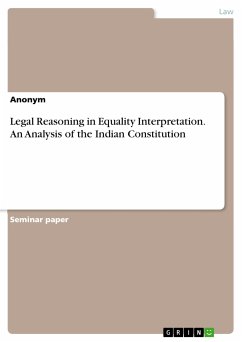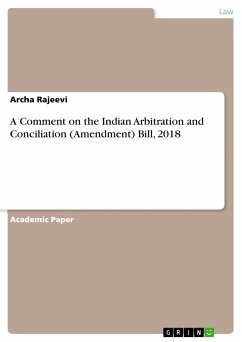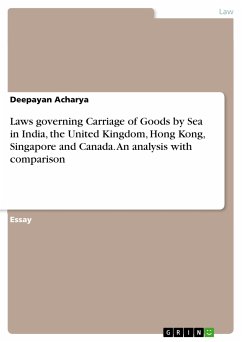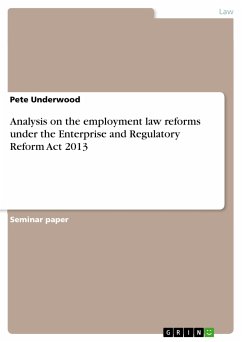Seminar paper from the year 2018 in the subject Law - Philosophy, History and Sociology of Law, Symbiosis International University, language: English, abstract: The Following research paper deals with the Equality Interpretation in the Indian Constitution (including Constituent Assembly debates) with regard to Gender Justice and Feminism. By employing doctrinal research marked by chronological case analysis along with deductive type of reasoning it seeks to analyse the notion of Equality within the Indian Constitution and its interaction with feminist literature. It further analyses the interpretation of the courts with regard to Equality provisions within the Constitution and whether these interpretations advance Gender Justice. It finally deals with the Interaction of Indian scenario with CEDAW and enlists the findings that arise after all the aforementioned analysis. The meaning of equality in law nearly everywhere descends in a direct line from Aristotle's dictum that equality means treating likes alike, unlikes unalike. This notion of Equality has been enshrined in nearly all constitutions in the world. 14th Amendment of the U.S Constitution provides the guarantee of Equality. The Equal Protection clause of the Fourteenth Amendment is one of the most litigated sections of the American Constitution. US Supreme Court has developed a three-tier analysis approach. Under this system, with a challenged classification, the government has to show that this classification serves a compelling state interest and that the legislation is necessary to serve the interest.
Dieser Download kann aus rechtlichen Gründen nur mit Rechnungsadresse in A, B, BG, CY, CZ, D, DK, EW, E, FIN, F, GR, HR, H, IRL, I, LT, L, LR, M, NL, PL, P, R, S, SLO, SK ausgeliefert werden.









